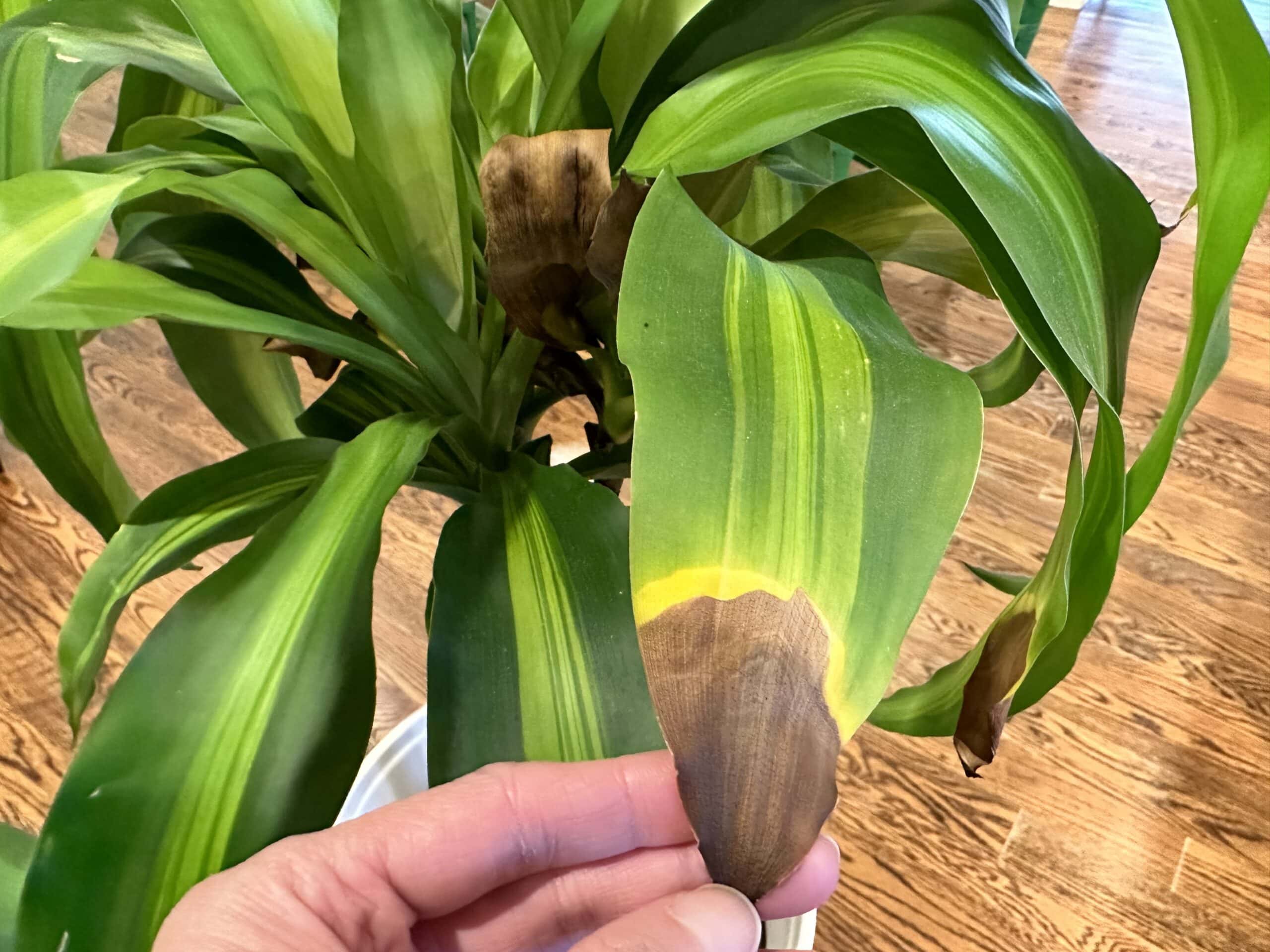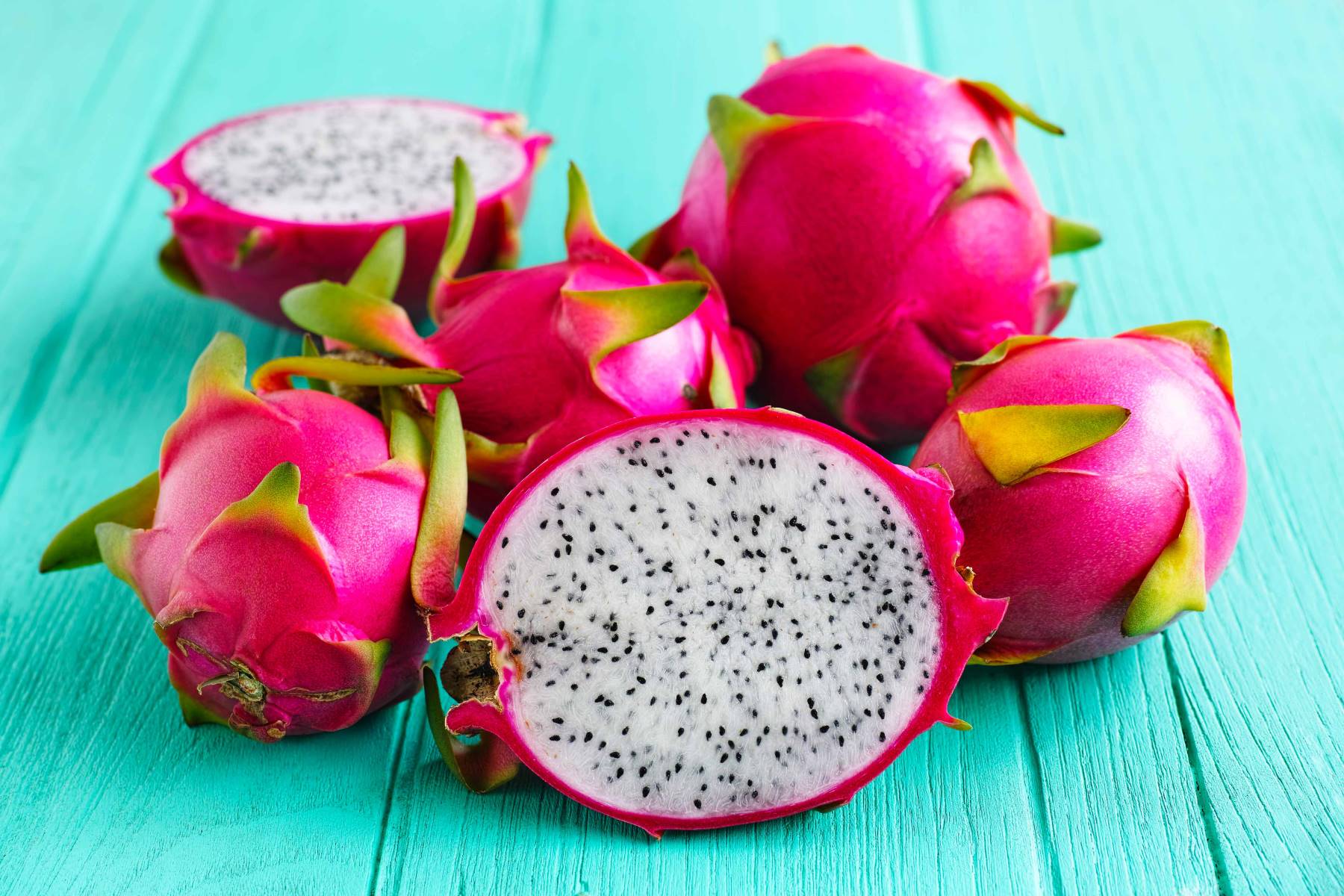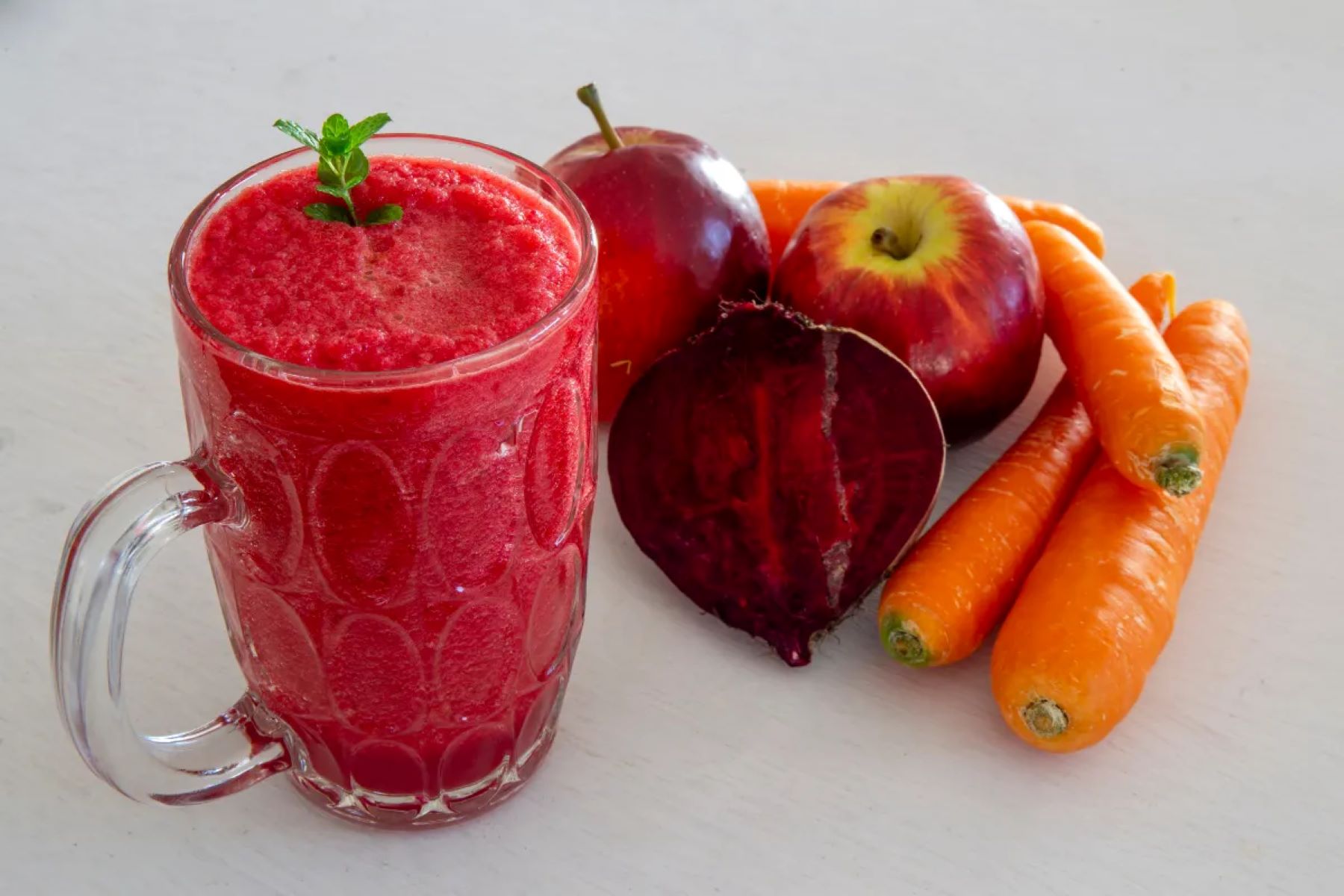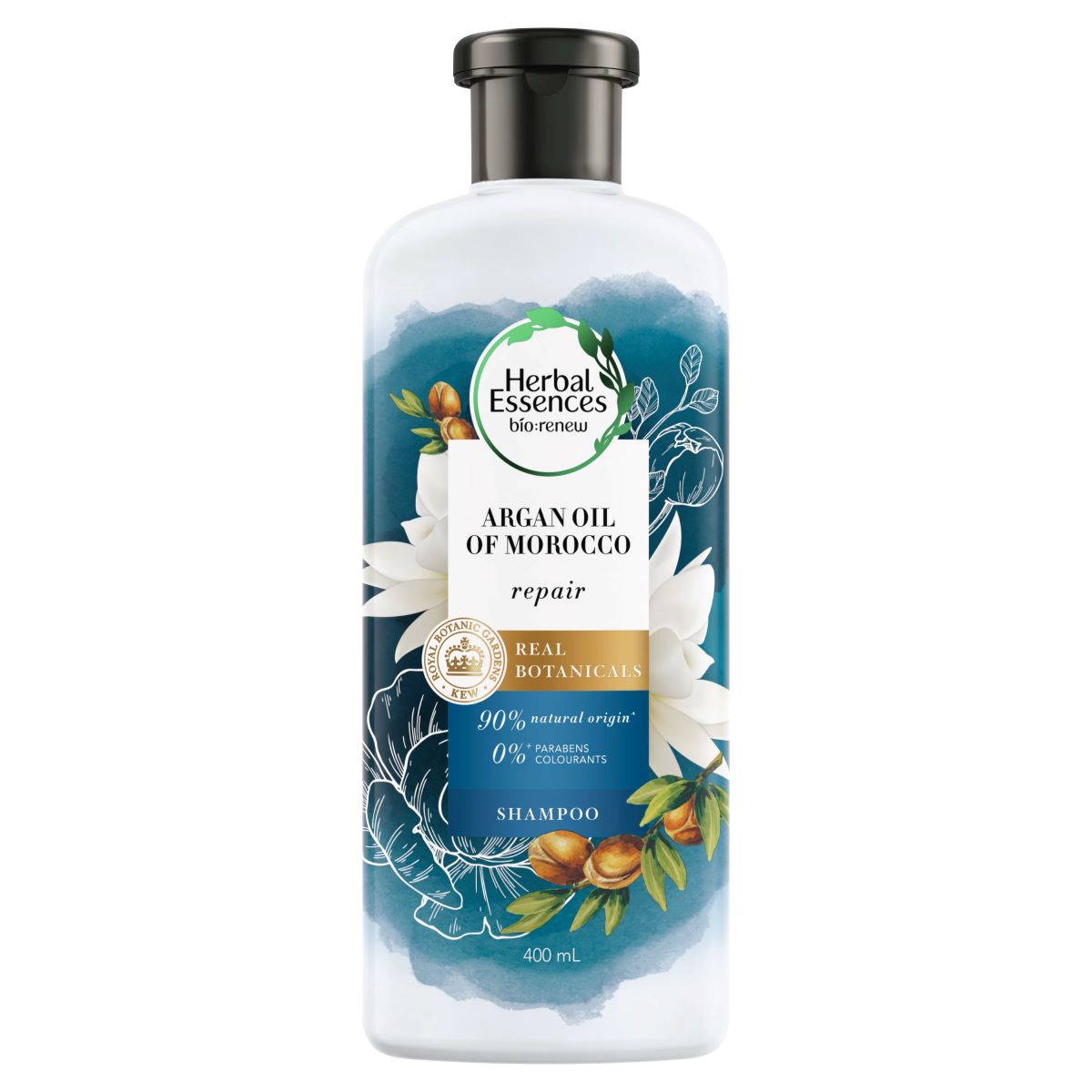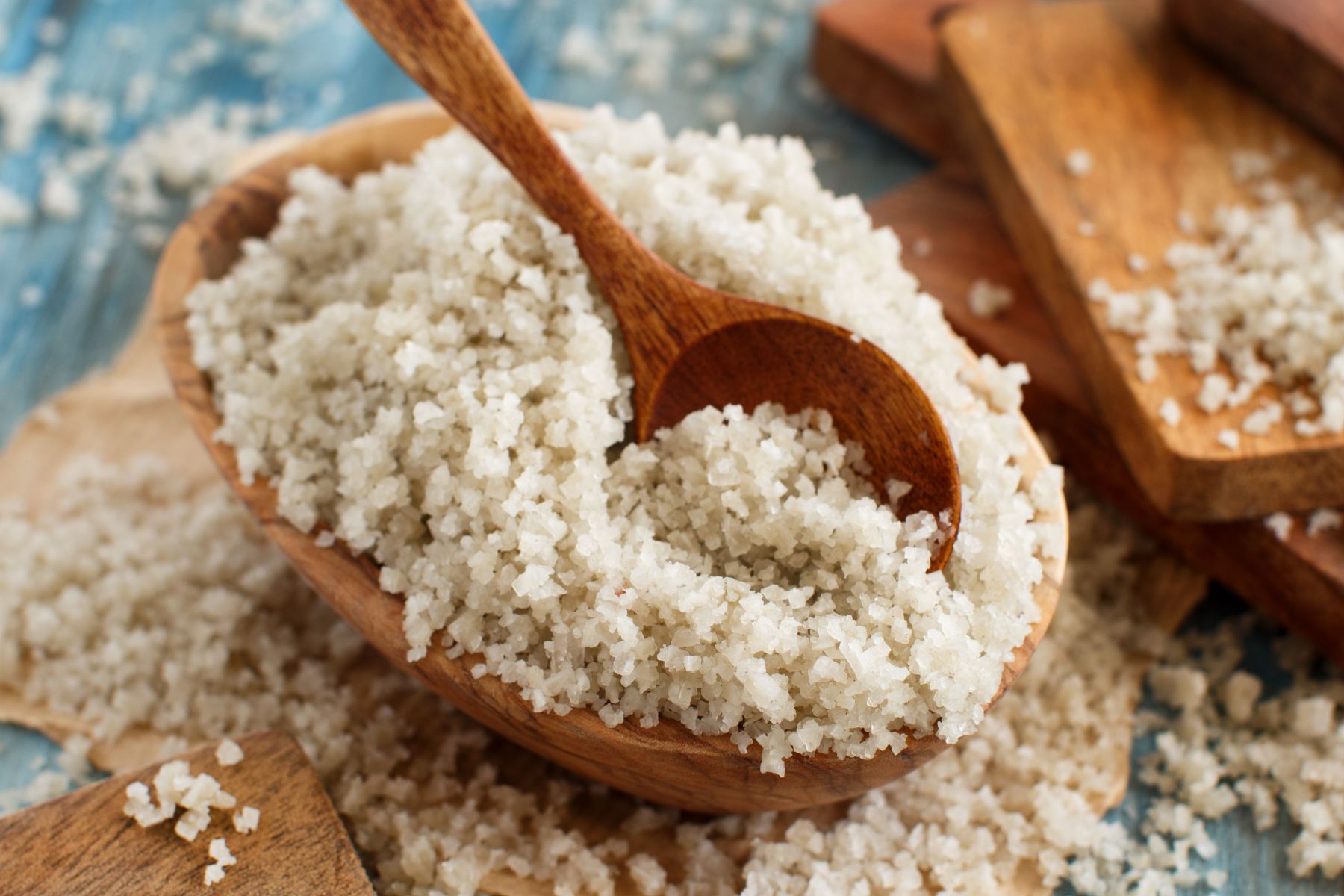Home>Science>Discover The Surprising Benefits Of Spraying Soapy Water On Plants!
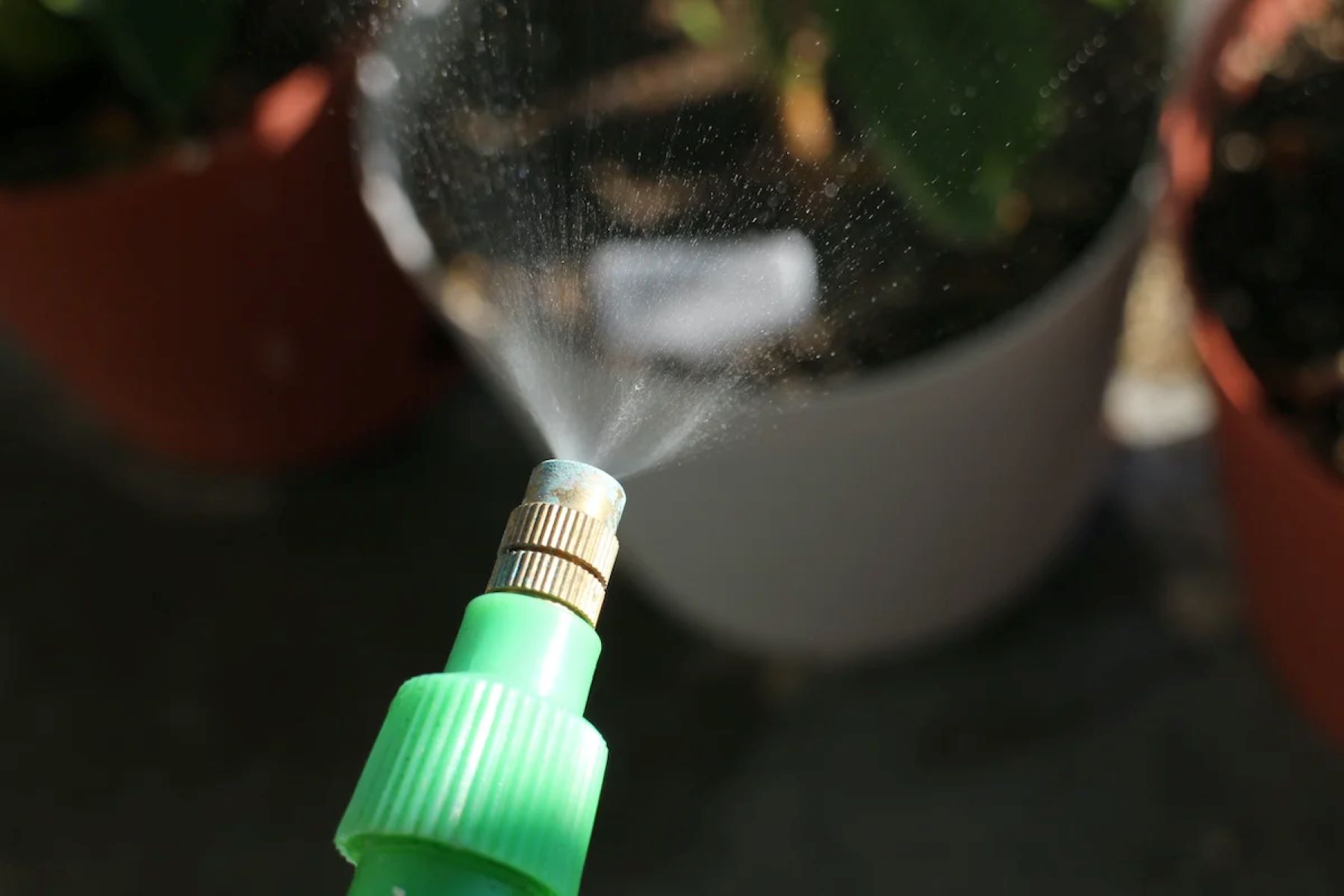

Science
Discover The Surprising Benefits Of Spraying Soapy Water On Plants!
Published: January 26, 2024
Explore the fascinating science behind using soapy water on plants and uncover its surprising benefits. Discover how this simple method can enhance your gardening experience!
(Many of the links in this article redirect to a specific reviewed product. Your purchase of these products through affiliate links helps to generate commission for Regretless.com, at no extra cost. Learn more)
Table of Contents
Introduction
Gardening enthusiasts and plant lovers are always on the lookout for natural and effective ways to nourish and protect their green companions. One such method that has gained attention and acclaim is the use of soapy water on plants. The idea of spraying soapy water on plants might initially sound unconventional, but its benefits are indeed surprising and worth exploring.
Soapy water, as the name suggests, is a simple solution comprising water and a small amount of dish soap or liquid soap. This uncomplicated concoction has garnered attention for its remarkable ability to benefit plants in various ways. From controlling pests to preventing fungal diseases and enhancing nutrient absorption, soapy water has proven to be a versatile and valuable ally for plant care.
In this comprehensive guide, we will delve into the science behind soapy water and its impact on plants. By understanding the mechanisms at play and the tangible benefits it offers, you will gain valuable insights into how this humble solution can elevate the health and vitality of your beloved plants. Join us as we uncover the surprising advantages of spraying soapy water on plants and discover how this simple practice can revolutionize your approach to plant care.
What is Soapy Water and How Does it Work?
Soapy water, a concoction of water and a small amount of dish soap or liquid soap, serves as a versatile and cost-effective solution for nurturing and safeguarding plants. The science behind its efficacy lies in the unique properties of soap molecules. Soap contains surfactants, which are compounds that can reduce the surface tension of water. This reduction in surface tension enables the soapy water to spread more evenly and penetrate the plant's surface more effectively than plain water.
When soapy water is sprayed onto plant leaves, the surfactants in the soap help to break down the natural waxy layer on the leaves, known as the cuticle. This allows the solution to spread across the leaf surface, reaching pests and pathogens that may be present. Additionally, the soapy water can disrupt the cell membranes of certain pests, leading to their dehydration and eventual demise.
Moreover, the soapy water can also suffocate soft-bodied insects such as aphids, whiteflies, and spider mites by coating their bodies and obstructing their ability to breathe. This dual action of disrupting the pests' protective coatings and impeding their respiration makes soapy water an effective and environmentally friendly pest control method.
Furthermore, the soapy water can help to dislodge and wash away dust, grime, and other debris that may accumulate on the plant's foliage. This cleansing action not only enhances the plant's appearance but also promotes better photosynthesis and respiration by allowing more light and air to reach the leaf surface.
In summary, the surfactants in the soap enable soapy water to spread and adhere to plant surfaces more effectively than plain water. This enhanced coverage facilitates the disruption and elimination of pests, the cleansing of foliage, and the overall improvement of plant health. With a clear understanding of how soapy water works, we can now explore the specific benefits it offers to plants in greater detail.
How Soapy Water Benefits Plants
Soapy water, a simple yet powerful solution, offers a multitude of benefits that significantly contribute to the well-being of plants. Let's explore the remarkable ways in which this humble concoction enhances the health and vitality of our green companions.
Controlling Pests with Soapy Water
One of the most notable benefits of using soapy water on plants is its effectiveness in controlling pests. When sprayed onto plant foliage, the surfactants in the soap disrupt the protective coatings of soft-bodied insects such as aphids, whiteflies, and spider mites. This disruption not only leads to the dehydration of the pests but also impedes their ability to breathe, ultimately resulting in their demise. By targeting these common garden pests, soapy water serves as a natural and environmentally friendly alternative to chemical insecticides, mitigating the risks associated with harmful chemicals while effectively managing pest infestations.
Preventing Fungal Diseases
In addition to pest control, soapy water also plays a pivotal role in preventing fungal diseases that can afflict plants. The cleansing action of soapy water helps to remove dust, grime, and other debris from plant leaves, reducing the likelihood of fungal spores finding a hospitable environment to thrive. By keeping the plant's foliage clean and free from potential fungal pathogens, soapy water acts as a proactive measure to safeguard plants against common fungal infections, thereby promoting overall plant health and resilience.
Enhancing Nutrient Absorption
Furthermore, the application of soapy water can positively impact the plant's ability to absorb nutrients. By breaking down the waxy cuticle layer on the leaves, soapy water facilitates the penetration of essential nutrients into the plant's system. This enhanced nutrient absorption can contribute to improved growth, vigor, and overall health, empowering plants to thrive and flourish in their environment.
In summary, the benefits of using soapy water on plants are multifaceted and impactful. From controlling pests and preventing fungal diseases to enhancing nutrient absorption, this simple yet effective solution offers a holistic approach to nurturing and protecting plants. By incorporating soapy water into your plant care routine, you can harness its natural properties to promote a thriving and resilient garden, all while minimizing the reliance on synthetic chemicals and pesticides.
Controlling Pests with Soapy Water
Controlling pests with soapy water is a natural and effective method that offers a multitude of benefits for plant health. When soapy water is applied to plant foliage, it serves as a formidable weapon against common garden pests, including aphids, whiteflies, spider mites, and other soft-bodied insects. The key to its effectiveness lies in the action of soap surfactants, which disrupt the protective coatings of these pests, leading to their dehydration and eventual demise.
Soft-bodied insects such as aphids and whiteflies are particularly vulnerable to the effects of soapy water. Upon contact with the solution, the surfactants in the soap penetrate the pests' protective coatings, causing them to dehydrate and perish. Additionally, the soapy water can obstruct the pests' spiracles, which are small openings on their bodies through which they breathe. This suffocating action further contributes to the demise of the pests, effectively curbing their population and reducing the damage they inflict on plants.
Furthermore, the use of soapy water as a pest control method offers a natural and environmentally friendly alternative to chemical insecticides. By harnessing the power of soap surfactants, gardeners can effectively manage pest infestations without resorting to synthetic chemicals that may pose risks to beneficial insects, wildlife, and the broader ecosystem. This approach aligns with sustainable and eco-conscious gardening practices, promoting a harmonious balance between pest management and environmental stewardship.
Moreover, the simplicity and accessibility of soapy water make it an attractive option for gardeners seeking cost-effective and safe pest control solutions. With minimal ingredients required and easy application, soapy water presents a practical and versatile tool for maintaining plant health and protecting garden crops from the detrimental impact of insect pests.
In summary, controlling pests with soapy water offers a natural, environmentally friendly, and cost-effective approach to managing common garden pests. By leveraging the surfactant properties of soap, this method effectively disrupts and eliminates soft-bodied insects, safeguarding plant health while minimizing the reliance on synthetic pesticides. With its proven efficacy and compatibility with sustainable gardening practices, soapy water stands as a valuable ally in the ongoing effort to promote thriving and resilient gardens.
Preventing Fungal Diseases
Preventing fungal diseases is a critical aspect of plant care, and the use of soapy water presents an effective and proactive approach to safeguarding plants against these common ailments. Fungal diseases, such as powdery mildew, downy mildew, and black spot, can significantly impact the health and appearance of plants, leading to stunted growth, discoloration, and in severe cases, irreversible damage. By integrating soapy water into the plant care regimen, gardeners can implement a preventive strategy to minimize the risk of fungal infections and maintain the overall well-being of their green companions.
The cleansing action of soapy water plays a pivotal role in preventing fungal diseases by removing dust, grime, and other debris from the plant's foliage. These environmental factors can create an ideal habitat for fungal spores to germinate and proliferate, leading to the onset of infections. By regularly applying soapy water to the leaves, gardeners can effectively cleanse the plant's surface, reducing the presence of potential fungal pathogens and creating an inhospitable environment for their development.
In addition to physical cleansing, the surfactants in the soap contribute to the prevention of fungal diseases by breaking down the waxy cuticle layer on the leaves. This action enhances the plant's natural defense mechanisms, making it more challenging for fungal spores to establish a foothold and penetrate the leaf surface. By bolstering the plant's resistance to fungal infections, soapy water serves as a proactive barrier, fortifying the plant's defenses and reducing its susceptibility to common fungal diseases.
Furthermore, the preventive use of soapy water aligns with sustainable and organic gardening practices, offering a natural and environmentally friendly approach to disease management. By minimizing reliance on synthetic fungicides, gardeners can embrace a holistic and eco-conscious method of protecting plants, promoting a harmonious balance between plant health and environmental stewardship.
In summary, preventing fungal diseases through the application of soapy water embodies a proactive and environmentally responsible approach to plant care. By leveraging the cleansing and protective properties of soapy water, gardeners can create an inhospitable environment for fungal pathogens, reducing the risk of infections and promoting the overall health and resilience of their cherished plants.
Enhancing Nutrient Absorption
Enhancing nutrient absorption is a fundamental aspect of promoting robust growth and vitality in plants. The application of soapy water presents a unique opportunity to augment the plant's ability to assimilate essential nutrients, thereby fostering a thriving and resilient garden ecosystem.
When soapy water is sprayed onto plant leaves, the surfactants in the soap play a pivotal role in breaking down the waxy cuticle layer that coats the leaf surface. This action effectively enhances the permeability of the plant's foliage, facilitating the penetration and absorption of vital nutrients, including nitrogen, phosphorus, potassium, and micronutrients essential for plant growth and development.
By disrupting the natural barrier presented by the waxy cuticle, soapy water creates a pathway for nutrients to enter the plant's system more efficiently. This enhanced nutrient uptake can lead to tangible benefits such as improved photosynthetic activity, enhanced root development, and overall vigor in the plants. As a result, plants are better equipped to withstand environmental stressors, promote flowering and fruiting, and exhibit heightened resilience to pests and diseases.
Furthermore, the increased nutrient absorption facilitated by soapy water can contribute to the optimization of fertilizer utilization. By ensuring that applied fertilizers are effectively absorbed by the plants, gardeners can maximize the benefits of their fertilization efforts while minimizing potential nutrient leaching and runoff, thereby promoting sustainable and efficient nutrient management practices.
The ability of soapy water to enhance nutrient absorption aligns with the principles of sustainable and organic gardening, offering a natural and eco-conscious approach to optimizing plant nutrition. By harnessing the plant-friendly properties of soapy water, gardeners can promote a balanced and thriving garden ecosystem, characterized by healthy, vibrant plants that are better equipped to fulfill their potential in both aesthetic and functional roles.
In essence, the application of soapy water to enhance nutrient absorption represents a holistic and proactive approach to plant care, empowering gardeners to optimize the health and vitality of their cherished plants while minimizing reliance on synthetic additives. By embracing this natural and effective method, gardeners can cultivate a flourishing garden environment where plants thrive and flourish in harmony with nature's inherent processes.
Conclusion
In conclusion, the practice of spraying soapy water on plants yields a myriad of surprising benefits that significantly contribute to the overall health and resilience of our green companions. From controlling pests and preventing fungal diseases to enhancing nutrient absorption, soapy water emerges as a versatile and effective ally in the quest for thriving and sustainable plant care.
The ability of soapy water to disrupt and eliminate common garden pests, such as aphids, whiteflies, and spider mites, offers a natural and environmentally friendly alternative to chemical insecticides. By leveraging the surfactant properties of soap, gardeners can effectively manage pest infestations while minimizing the risks associated with synthetic chemicals, thereby fostering a balanced and harmonious garden ecosystem.
Moreover, the preventive action of soapy water in cleansing plant foliage and breaking down the waxy cuticle layer serves as a proactive measure against fungal diseases. By creating an inhospitable environment for fungal pathogens, soapy water reduces the risk of infections and promotes the overall well-being of plants, aligning with sustainable and eco-conscious gardening practices.
Furthermore, the capacity of soapy water to enhance nutrient absorption presents an opportunity to optimize plant nutrition and promote robust growth. By facilitating the permeability of plant foliage and improving the uptake of essential nutrients, soapy water empowers plants to thrive, exhibit resilience, and fulfill their potential within the garden environment.
In embracing the use of soapy water as a natural and effective plant care tool, gardeners can cultivate a thriving and resilient garden ecosystem characterized by healthy, vibrant plants that flourish in harmony with nature's inherent processes. By incorporating this simple yet powerful practice into their plant care regimen, gardeners can embark on a journey towards sustainable and eco-conscious gardening, where the well-being of plants and the broader ecosystem are nurtured with care and respect.
Ultimately, the surprising benefits of spraying soapy water on plants underscore the remarkable potential of natural and accessible solutions in fostering plant health and vitality. As we continue to explore innovative and sustainable approaches to plant care, soapy water stands as a shining example of the transformative impact that simple, nature-inspired practices can have on the well-being of our beloved plants.


